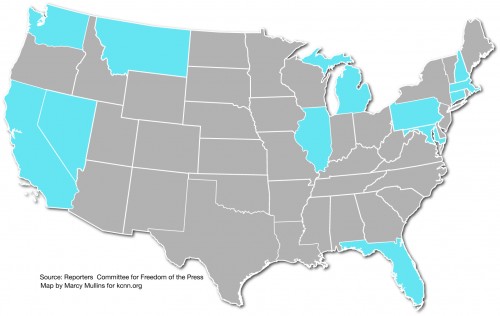 Why Interview? |
 Interview Types |
 Interview Tools |
 Interview Ethics |
 Test Your ‘IQ’ |
 Resources |
Recording interviews: Legal issues
Taping a phone interview is a great way to make sure you quote your source accurately. Taping also helps you keep the contents of an interview fresh in your mind and it can provide audio clips for your Web site. First, be sure your batteries are fresh. Second, if you’re going to tape, it’s crucial that you know the legal ramifications of recording a telephone conversation.
Question: Do I legally have to inform the other party (or parties) that I am taping a call?
Answer: It depends on what state you’re in and what state your source is in. Laws regarding recorded phone calls vary by state, so it’s essential to review the rules before you press the “record” button.
Twelve states — California, Connecticut, Florida, Illinois, Maryland, Massachusetts, Michigan, Montana, Nevada, New Hampshire, Pennsylvania and Washington — require that all parties involved in a phone conversation be aware that recording is taking place. The 38 remaining states and the District of Columbia have “one-party consent” statutes. In those jurisdictions you can tape a phone conversation without revealing that you are doing so.

It’s always best to ask for permission to record, whether you legally are required to or not. It makes for goodwill and openness before the conversation starts. Also, getting your source’s permission to tape reduces the risk of a lawsuit down the road.
For more information about the legal issues surrounding the taping of telephone and other conversations, check out the guide published by the Reporters Committee for Freedom of the Press.
